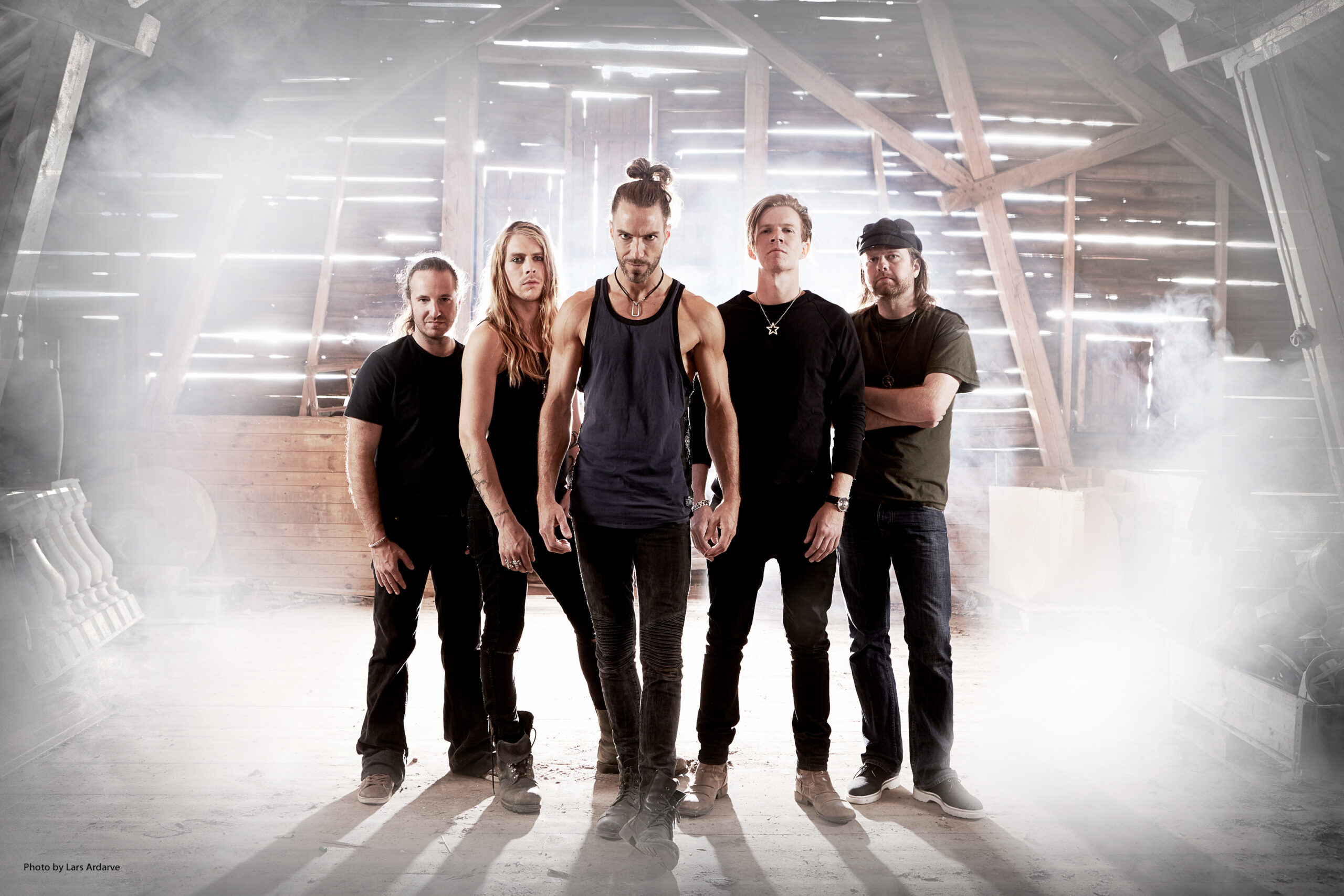
DANIEL GILDENLÖW (Pain Of Salvation)
`I felt very, very mortal’
In 1997 Swedish prog metal band Pain Of Salvation released its ground-breaking debut `Entropia’, being a fresh wind in the progressive metal scene, at the time dominated by Queensrÿche, Savatage, Dream Theater, Fates Warning, Angra, Symphony X and Threshold. Pain of Salvation started to climb the ladder of success, but like many other bands also POS faced struggles and line-up changes in its career. With the albums `Road Salt One’ (2010) and `Road Salt Two’ (2011), followed by the acoustic album `Falling Home’ in 2014, the band even took a musical detour to close circles, something that wasn’t appreciated by every fan and journalist. It was also in 2014 that singer/guitarist Daniel Gildenlöw ended up in the hospital suffering from flesh-eating bacteria. While fighting for his life for months, the frontman couldn’t imagine this would become the lyrical foundation for the brand new CD `In The Passing Light Of Day’. HeadBangers LifeStyle talked with Daniel Gildenlöw about the new album, the more heavy and darker sound on it, closing circles and his life-threatening experience.

Did you make this concept album for personal closure to deal with your hospital stay and recovery?
,,There were lots of wonderful fans around the world supporting me and sending love in different shapes and forms on the internet and several of them mentioned to make a concept album out of it. But during my hospital stay, I actually decided against making a concept album out of it, because lying there in the hospital bed in my really unsexy clothing, everything was very far from exotic. It just didn’t feel like there was any possibility turning that into a concept album. Listen to how that sounds: a metal concept album about flesh-eating bacteria. But when I sat down and started writing lyrics, I noticed that, although it wasn’t really the flesh-eating bacteria at the centre of it, it was still revolving around the feelings I had during that period; feeling fragile and exposed and very, very mortal. All of those things that you revolve around mentally in that situation, those were the topics that came naturally to me. I always believed in writing about what comes naturally because that is just going to be true and interesting. Considering the music, actually during the production phase of the `Road Salt’ project I was already aiming for having the next album to be more of a return to the metal roots, what people usually call the roots of Pain Of Salvation. But it was delayed all the time for different reasons. The `Road Salt’ project took way much more time than expected. At first it was supposed to be one album, then it turned into a double album and in the end it turned out into two albums. After that there was the `Falling Home’ release, which was just supposed to be a recording of a live concert, but because the recording failed we had to record it in the studio instead. And then of course my hospital stay, which was far from the perfect planning. In retrospect, looking back at it, I wouldn’t have wanted it any other way, because the delay and my hospital stay together made for an even bigger appetite on going back with strength and force. And having the sort of fragile lyrics at the centre of it was the perfect match in a way.’’
Have you been completely open in the lyrics or did you keep things to yourself?
,,An album is really limited as a form, I guess. I haven’t sort of left anything out that I felt for any reasons of not exposing myself. But either way you do it, you are going end up feeling like it’s not a true image of reality. So I think I am always going to be sort of slightly disappointed either way because I feel like maybe I picked the parts that were too dramatic and left out some of the boring stuff or the other way around. From an artistic point of view I hope that I have selected the right slices of reality to make it an interesting journey that can tell something about the mental process somehow and that people can relate to, even though they haven’t had flesh-eating bacteria per se [laughing].’’
The album will also be a constant reminder of what happened and how things could have end up wrong. How do you feel about that?
,,It does bother me because I have been through that with `Remedy Lane’. One of the problems is when I am on stage I always want to be hundred per cent into the lyrics that I am singing, which means that I have to put myself in that difficult, emotionally and fragile spot every time I perform these songs. And that is sort of a problem because I know that you get to a point you are ready to leave it behind, but still have to stand there on stage and going back to that exact point every time. On the other hand when you take parts of your memories and you turn it into a product, because it is in a way, and you repeat those specific things over and over again, they burn out. Actually sometimes I can feel that when I write about something that is truly something intimate. It is almost like you’re loosing them, loosing your own versions of these memories, those events and they become these songs and lyrics. In a way you get a distance and as time goes by it feels like you are not really certain about your own memories anymore.’’
Why did you want to go back to the more heavy and darker sound with this album?
,,I am always driven by restlessness on some level. As soon as I do something I have this desire to have a balance. And if you are mixing acoustic guitars and working on acoustic elements and acoustic instruments for 5 months you really want to crank up an amplifier. That is how I function. Not to mention as a band you have to work with every new album for quite a while and you have already been living with it for months before its release. So I was ready for this, but I have to say first making the `Road Salt’ albums and going back to my roots with that was necessary for me, because at a certain point in time I got worried that music couldn’t really get to me anymore. I listened to all these new music and I felt nothing. I got a bit scared I burned the magic out, because I deal and work with music all the time. I was just so sick of the standards of prog metal and what it had become. Then I realized that listening to music from the seventies had an impact on me and I could actually feel something. This music wasn’t hidden under layers of cold production and super symmetrical dubbed guitars and drums that are just sounding like D-drums on steroid. So the `Road Salt’ albums were a way of closing circles for myself and also going somewhere completely different for a while. It also gave me time to heal from the fact our drummer Johan Langell left the band and a long term steady line-up of the band finally was falling apart. Johan and I were playing together since he was 14 and I was 16.’’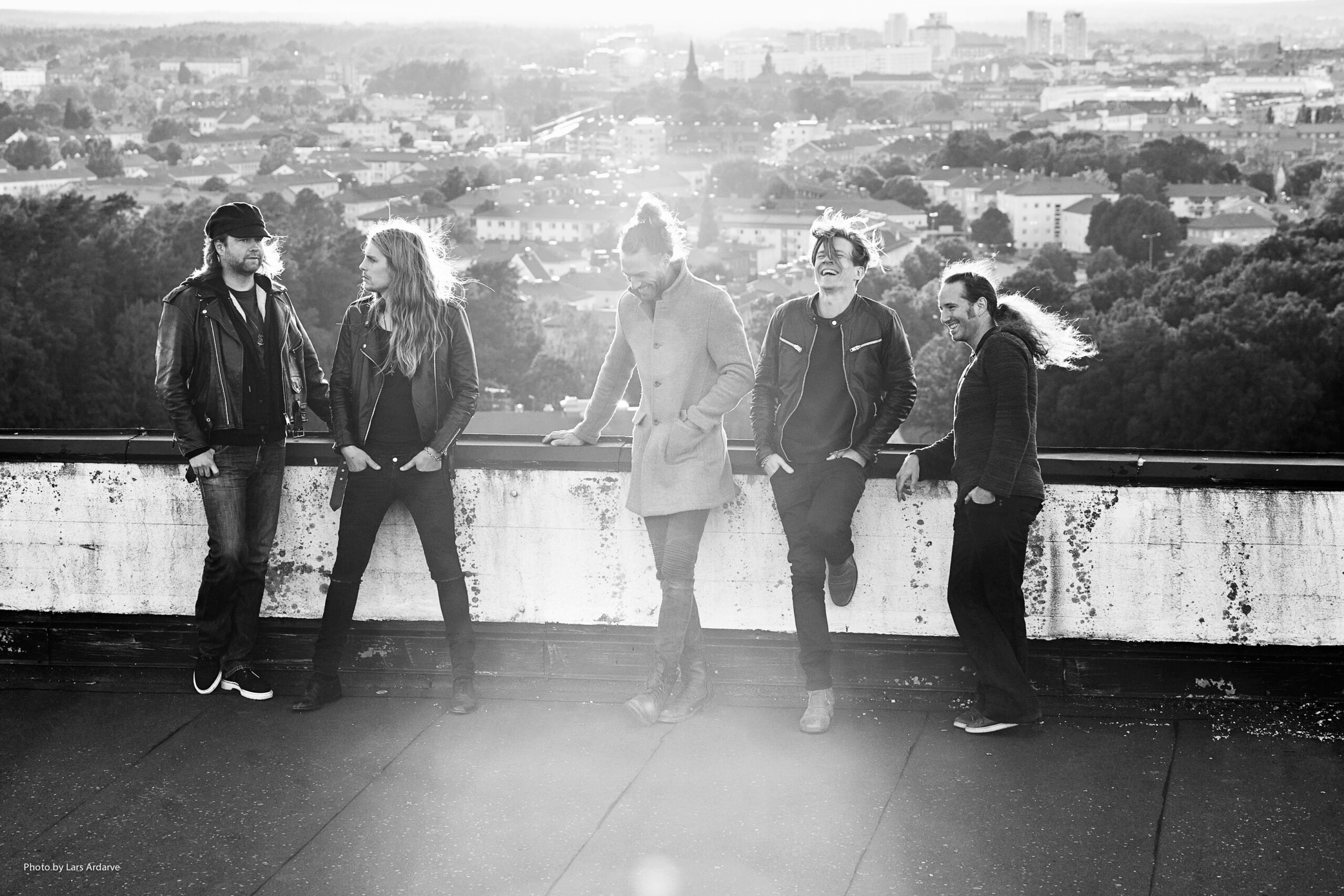
Did your new guitar player Ragnar Zolberg had any part in the writing process?
,,When we were auditioning for a new guitar player, after Johan Hallgren left, we only looked at the guitar playing and the possibility of singing. When we took Ragnar Zolberg in as our new guitarist, we knew he is a great musician and he seems to be a nice guy, but he also turned out to be a good person to write together with for sure that I haven’t had in the same ways since Daniel Madgic had to leave the band after the first album. So yes, for the first time in a very long time I felt that I had someone that I could actually sit down and write music together with. But some people are annoyed with the combination of our voices and other people do really like it. But it is a matter of whether you like contrasts or not. To me that’s a certain gain. You get something that you couldn’t get otherwise. And I think that our band is a lot about contrasts.’’
Why did you decide to work with producer Daniel Bergstrand (In Flames, Meshuggah, Devin Townsend)?
,,Having your own home studio and do things exactly how you want it is nice in a way. It was a new time with new possibilities for me back then. But after a few years, I was so sick and tired of sitting alone by a computer and being in charge of everything. I was longing back to a studio environment and working together with people, bouncing ideas. I missed that entire `being on camp with the band’ [laughing], like we did for the first albums. So this time I wanted to go into a studio and have a producer involved. Since I heard the first Meshuggah album Daniel was in my peripheral view all the time. He always struck me as someone who is old school at some level but he is also can have ugly things in the mix, in that beautiful nice way. Daniel seems to care a lot about sound and is ready to walk that extra mile when he believes in something. That turned out to be all-true, all the way. It was wonderful working together with him. The one thing that really stroke me from the first minute working with him was how much he knew and how much he cared about the drum sound. The drum sound for this album is what I was trying to get since our first album.’’
How does this album mark the career of POS and how important is this release for the career of POS?
,,It is not up to me but I feel it is an album that puts the foot down and shows any doubters out there what Pain Of Salvation is about. It combines a lot of elements from the different eras of Pain Of Salvation without sounding like it is aiming for that. It is not forced in any way. It just happens to do that. Just like I felt that with `Perfect Element Part 1’ and `Remedy Lane’ POS was reaching a steady ground, which we were searching for a long time. I think our new album is another one of those steady states, where things just come together and fall into place. If you look back on the journey we have been taken the last decade, the paths are all aiming to this point, which is always a nice feeling of closing circles somehow.’’
In February you hit the road for a tour in North America followed by a European tour. Is the experience and meaning of touring different from the early days?
,,Yeah for sure. One thing that of course is different is when we did the first tours it was with that sort of wonderful anticipation and that feeling of `we are going to conquer the world and it is going to change everything’! After many years you brace yourself a little bit for the hardships, because touring is not easy. It is hard on the body and mind and there are always going to be lots of uphill days on a tour. Another thing that definitely changed is that we have families now and it is harder to be away. Every day and every week counts. You are much more aware of the fact that every day is a balance. Is this day worth being away from your family, from your kids? At what point does the balance not work out anymore? That is a difficult balance for sure that becomes more tangible every year. It also becomes more and more difficult to make a set list, having so many albums in our back catalogue. But in the end usually we just play the songs we like to play.’’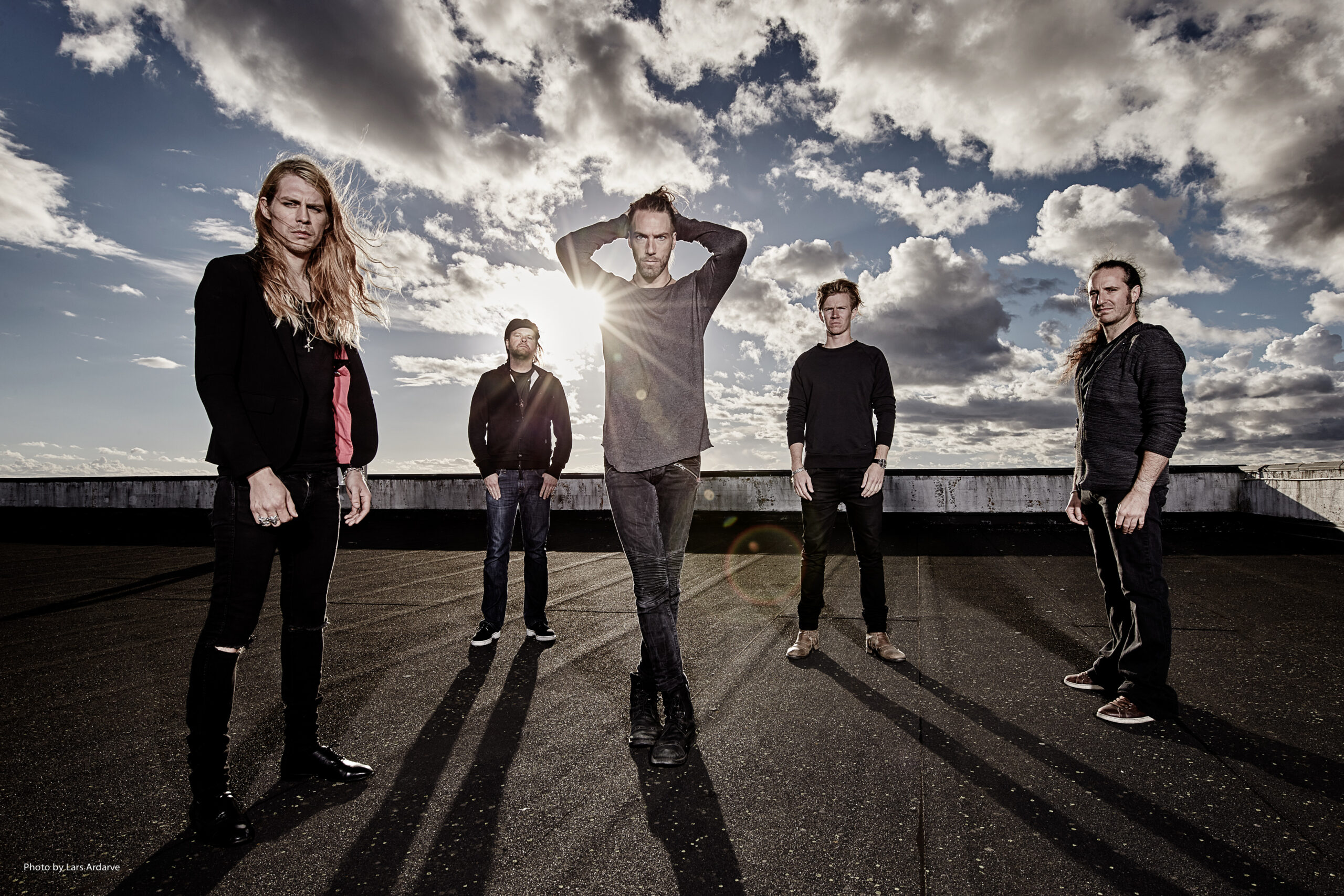
POS is in the game for a long time now, where do you like to see the band in five years?
,,I want POS to grow bigger, without sounding pretentious. It is not because I want to be more famous or more cooler or whatever, but I want us to get to the point, a higher level, where it is not a constant struggle every year to make that balance actually work out. Where you feel that it’s not costing you so much every year as a person and as a band. I made a calculation a few years back of how many streams I would need one month just to pay the rent. It is in the millions, it is just ridicules. So it is a harsh industry and it demands a lot of passion and a lot of sacrifices and I am not going to pretend that I would choose something else just because of that, but it is difficult to make it all work out in this industry for sure. Now looking back from all this distance, and I talk about this in the song ,,Full Throttle Tribe’’, I think the main reason I started a band, being 11 years old, is to have a world that I made sense of. I wanted to create my own little tribe, my own little context, my own bubble of reality. So I am sure that we are still going to be around in five years, I just can’t see anything else.’’
But is it all still worth it?
,,When you stand on stage or meet a fan saying all these positive things and what our music has meant to him or her, yes, it is all worth it! And being able to express your inner feelings in lyrics and create the music that you love yourself, that is something you can’t put a price on.’’
What would you like to say to your fans?
,,I am looking forward to yet another circle in the life of POS and seeing them again on tour. And I hope everyone will take a listen to the new album. If they do that than the album will do whatever it needs to be doing. That is all I hope for.’’
—
Follow Pain Of Salvation on Facebook and visit the Website.

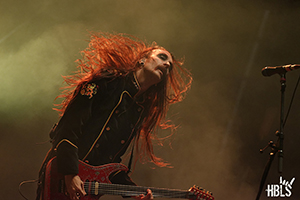


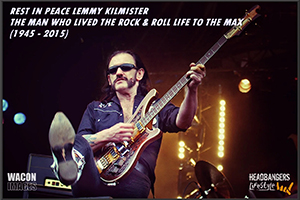
Comments